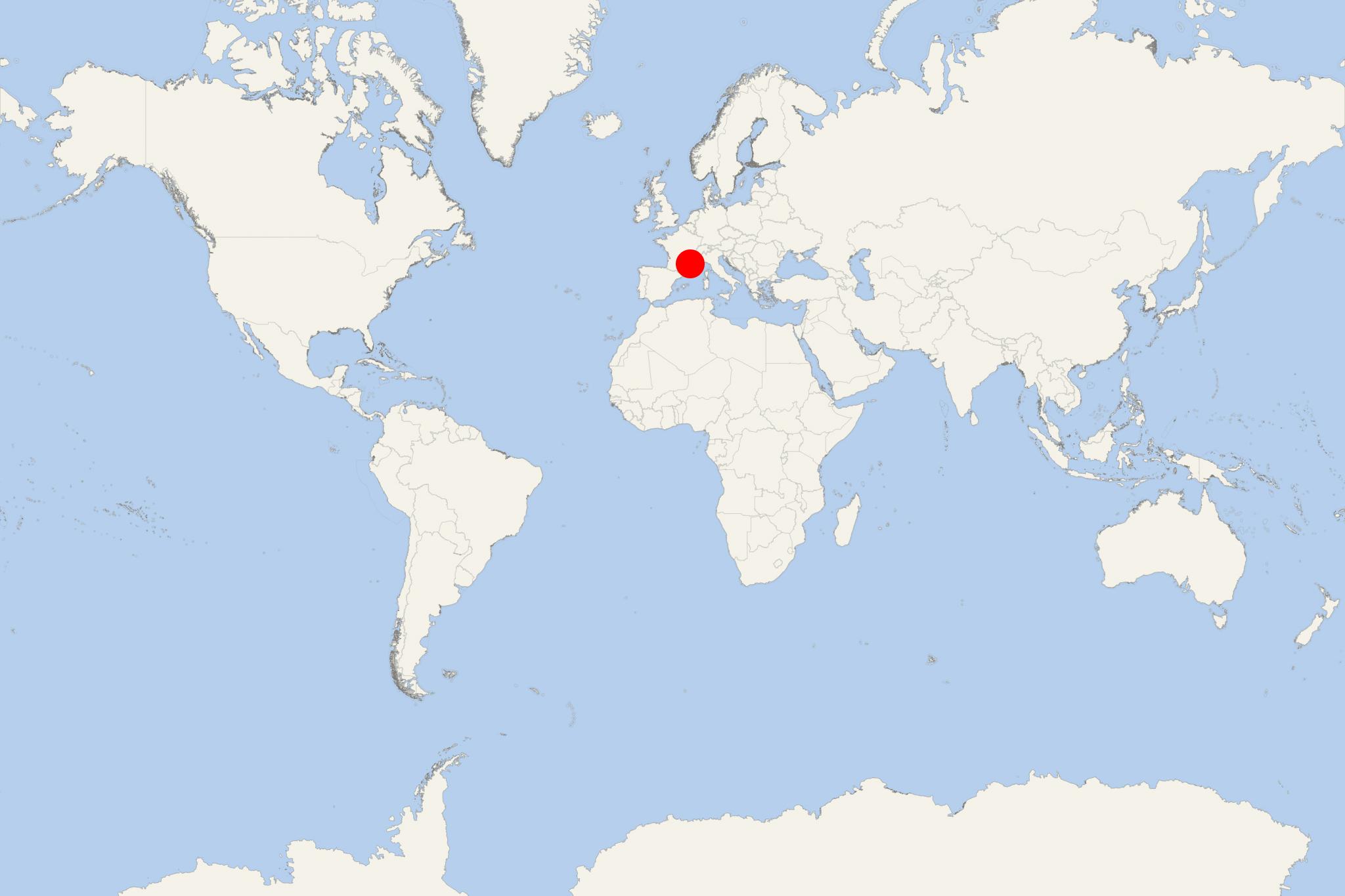Chateauneuf du Pape (France)
Cruise Port schedule, live map, terminals, news
Region
France Rivers
Local Time
2025-04-04 11:54
 65°F
65°F 18.2°C

 Light breeze
Light breeze1.7 m/s
 71 °F / 22 °C
71 °F / 22 °C 51 °F / 11 °C
Port Chateauneuf du Pape cruise ship schedule shows timetable calendars of all arrival and departure dates by month. The port's schedule lists all ships (in links) with cruises going to or leaving from Chateauneuf du Pape, France. To see the full itineraries (ports of call dates and arrival / departure times) and their lowest rates – just follow the corresponding ship-link.
| Day | Ship | Arrival | Departure |
|---|---|---|---|
| 4 July, 2025 Friday | |||
| 4 July, 2025 Friday | |||
| 7 July, 2025 Monday | 17:00 | 18:00 | |
| 14 July, 2025 Monday | 17:00 | 18:00 | |
| 16 July, 2025 Wednesday | |||
| 21 July, 2025 Monday | 17:00 | 18:00 | |
| 28 July, 2025 Monday | |||
| 28 July, 2025 Monday | 17:00 | 18:00 |
Chateauneuf-du-Pape is a Rhone River cruise port in southeastern France. The commune is in the Vaucluse department (Provence-Alpes-Cote d'Azur region). The village is located approx 3 km (2 ml) to the east of the river and 12 km (7,5 ml) north of Avignon. This small town has population of around 2,000 and covers a total area of 25,9 km2 (10 ml2).
A ruined mediaeval castle is still sitting at the top of the village, dominating the beautiful landscape to the south. The castle was built for Pope John XXII (1244-1334), who was the 2nd pope residing in Avignon during his papacy (August 1316 - December 1334). With the popes leaving the castle, it passed to the Avignon's archbishop. Being too large and expensive to maintain, its building stones were used for construction works in the town. During WW2 (1939-1945) the locals tried to demolish the castle's remains using dynamite, but succeeded in destroying only its northern half. Its southern half still remains intact.
Chateauneuf-du-Pape is famous worldwide for its production of red wine. Almost all cultivable land of the commune is planted with grapevines. The total annual wine production is about 13 million bottles (0,75 L), and of these 95% is red.
- Cruise Industry

Riverside Cruises UK season 2025-2026 (170+ departures/~130 itineraries in Europe)
The UK-based Riverside Luxury Cruises is set to offer travelers an extensive array of options in 2025, with 170+ departures across ~130 itineraries...
January 11, 2025 - show more news
